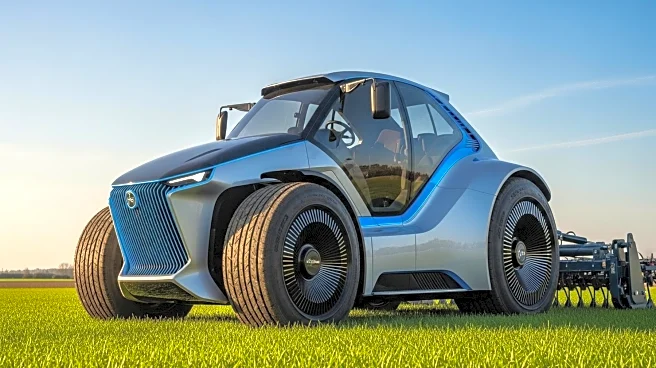What's Happening?
A pilot event in East Lansing, Michigan, showcased electric tractors to farmers, highlighting their potential benefits and challenges. Developed by Michigan State University researchers, these tractors offer quiet operation and reduced emissions, appealing to small farmers focused on sustainability. However, concerns remain about battery limitations, cost, and field clearance. The event aimed to gather feedback from farmers, who expressed interest in transitioning to electric machinery for environmental reasons. Companies like John Deere and Monarch Tractor are exploring electric options, though they face structural obstacles such as the need for fast chargers and solar panels.
Why It's Important?
Electric tractors represent a shift towards more sustainable agricultural practices, potentially reducing climate-warming emissions. They offer small farmers a way to market their products as environmentally friendly, aligning with global sustainability goals. However, widespread adoption faces hurdles, including economic feasibility and technological limitations. The interest from farmers and companies indicates a growing market for sustainable farming solutions, which could drive innovation and investment in electric agricultural machinery.
What's Next?
The development and testing of electric tractors will continue, with researchers and companies working to overcome current limitations. The focus will be on improving battery life, power, and cost-effectiveness to make electric tractors a viable option for more farmers. As demand grows, particularly in regions with progressive farming policies, companies may expand their offerings and invest in infrastructure to support electric machinery. The pilot event's feedback will inform future designs and strategies for promoting electric tractors in the agricultural sector.










